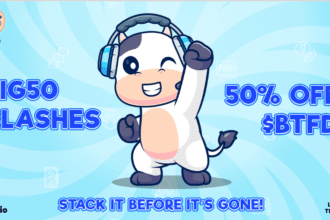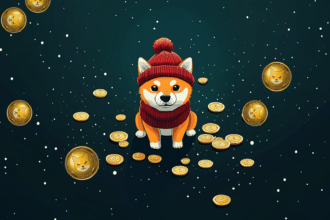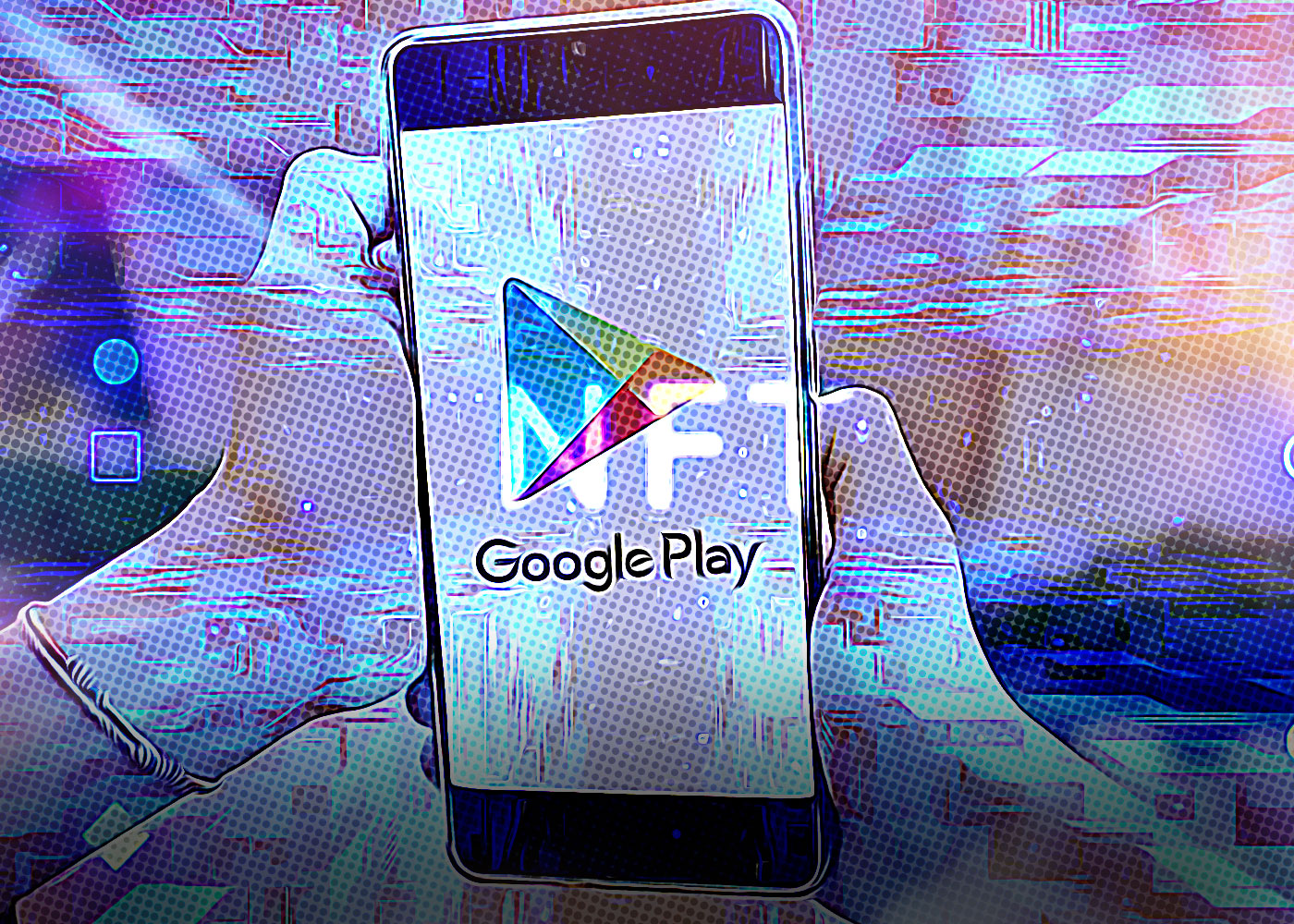With the rise of blockchain technology and digital assets, Google embraces new guidelines for its Play Store, setting the stage for a transformative era in mobile gaming and NFTs. These updated rules aim to integrate blockchain-based games and non-fungible tokens into the Play Store ecosystem, offering developers new opportunities and users innovative experiences. Consequently, this move signals a significant shift toward the mainstream acceptance of blockchain entertainment on mobile platforms, potentially reshaping how digital content is created and consumed. As the world of mobile gaming evolves, it’s essential to understand these changes and their broader impacts.
Understanding Google’s New Play Store Guidelines
As Google embraces the evolving digital landscape, it introduces new Play Store guidelines that significantly impact blockchain-based games and NFTs. These changes aim to foster innovation while ensuring user safety and compliance.
Important Aspects of the New Guidelines:
- Transparency: Developers must clearly disclose whether their game includes blockchain elements and NFTs.
- User Protection: Google emphasizes protecting users from potential risks associated with blockchain technology, requiring developers to include comprehensive security measures.
- Compliance: Games must adhere to existing laws and regulations regarding digital assets and cryptocurrencies.
Comparison of Old vs. New Guidelines:
| Aspect | Old Guidelines | New Guidelines |
|---|---|---|
| Transparency | Minimal disclosure requirements | Explicit disclosure of blockchain and NFT usage |
| User Protection | General security measures | Enhanced security requirements specific to blockchain |
| Legal Compliance | Standard legal adherence | Strict adherence to digital asset regulations |
Overall, as Google embraces the future of blockchain and NFTs, developers and users can look forward to a more secure, transparent, and regulated environment on the Play Store.
Potential Impacts on Blockchain-Based Games and NFTs
As Google embraces new Play Store guidelines, the landscape for blockchain-based games and NFTs is set for a significant transformation. The fresh regulations bring several potential impacts:
Increased Visibility: The new guidelines could lead to better visibility and legitimacy for blockchain-based games on the Play Store. Developers now have a clear path to bring their products to a mainstream audience.
Enhanced Security: By adhering to Google’s stringent rules, blockchain game developers must ensure heightened security, reducing the risk of fraud and enhancing user trust.
Improved User Experience: Developers can focus on refining their games’ user experience, knowing that they comply with Google’s expectations. This can result in more user-friendly interfaces and smoother gameplay.
| Feature | Before New Guidelines | After New Guidelines |
|---|---|---|
| Visibility | Limited | Expanded |
| Security | Variable | Enhanced |
| User Experience | Inconsistent | Improved |
Ultimately, as Google embraces these innovative technologies, blockchain-based games and NFTs could see a surge in popularity and acceptance. This shift heralds a new era for digital entertainment on mobile platforms, potentially altering the industry landscape.
The Future of Blockchain Entertainment on Mobile Platforms
As Google embraces blockchain-based games and NFTs with its new Play Store rules, the future of blockchain entertainment on mobile platforms looks incredibly promising. Several key developments and potential advancements could shape this evolving landscape:
- Wider Adoption: With Google embracing blockchain technology, more developers will feel encouraged to experiment and innovate. This could lead to a surge in blockchain-based games and NFT marketplaces, making these technologies more accessible to the general public.
- Enhanced Security and Ownership: Blockchain offers unparalleled security and clear ownership rights for digital assets. As a result, gamers can confidently purchase, trade, and own in-game items, knowing that these transactions are secure and transparent.
- Monetization Opportunities: The integration of NFTs and blockchain in mobile games will create new revenue streams for both developers and players. Players could earn through in-game activities or by trading unique digital items within the game’s ecosystem.
Comparison of Traditional Mobile Games vs. Blockchain-based Games
| Feature | Traditional Mobile Games | Blockchain-based Games |
|---|---|---|
| Security | Moderate | High |
| Ownership of Assets | Limited | Full |
| Revenue Opportunities | Primarily for Developers | For Developers and Players |
In conclusion, as Google embraces these technological advancements, the mobile gaming industry stands on the brink of a revolution. Developers and players alike can look forward to a future rich in innovation, security, and opportunity.
Frequently Asked Questions
What changes is Google making to its Play Store policies regarding blockchain-based games and NFTs?
Google is updating its Play Store policies to support blockchain-based games and NFTs. This move allows these types of games to be officially hosted and distributed via the Google Play Store, provided they follow specific guidelines. These guidelines are aimed at ensuring user transparency and protecting against potential fraud.
Why is Google updating its Play Store rules to include blockchain technology?
Google is updating these rules to stay ahead of evolving digital trends and to foster innovation within the gaming industry. By allowing blockchain-based games and NFTs on the Play Store, Google aims to support new forms of digital ownership and transaction methods, ultimately enhancing the user experience and broadening the app ecosystem.
How will these new policies impact developers?
These new policies will provide developers with more opportunities to innovate and reach a broader audience. Developers can now build and distribute blockchain-based games and NFTs directly through the Play Store, with clearly defined rules that promote transparency and user trust. This could potentially lead to new revenue streams and increased user engagement.
What are the specific guidelines for blockchain apps and games on the Play Store?
The specific guidelines require that developers make transparent disclosures about the blockchain elements of their apps and games. This includes clearly informing users about the presence of NFTs, crypto transactions, and any associated costs. Additionally, developers must comply with all existing Play Store policies, including those related to app content, security, and user data protection.








Crypto tips always!
Blockchain updates fun!
Crypto insights neat!
Crypto stories clear!
Crypto insights valuable!
Crypto insights useful!
Crypto news crisp!
Crypto stories valuable!
Crypto updates cool!
Crypto news useful!
Crypto articles solid!
Crypto updates daily!
Crypto trends fun!
Crypto insights reliable!
Bitcoin advice great!
Blockchain news useful!
Blockchain insights valuable!
Superb crypto content!
Crypto news engaging!
Crypto insights reliable!
Crypto updates solid!
Crypto articles detailed!
Blockchain stories engaging!
Crypto stories engaging!
Love the blockchain insights!
Blockchain insights daily!
Awesome crypto trends!
Crypto pieces rich!
Crypto news engaging!
Crypto info sharp!
Helpful Bitcoin guides!
Blockchain updates accurate!
Blockchain news leader!
Crypto updates great!
Crypto updates neat!
Crypto insights detailed!
Crypto stories engaging!
Crypto articles detailed!
Crypto news clear!
Crypto tips clear!
Crypto insights solid!
Crypto updates crisp!
Crypto content useful!
Blockchain updates clear!
Blockchain news leader!
Crypto articles detailed!
Blockchain insights daily!
Blockchain stories current!
Love the blockchain insights!
Blockchain updates accurate!
Crypto articles helpful!
Crypto insights useful!
Crypto stories engaging!
Crypto news neat!
Crypto guides useful!
Blockchain insights galore!
Blockchain insights valuable!
Blockchain articles clear!
Crypto info valuable!
Crypto tips neat!
Crypto news engaging!
Blockchain news crisp!
Blockchain articles clear!
Blockchain insights valuable!
Crypto updates great!
Crypto stories fresh!
Blockchain insights valuable!
Superb crypto content!
Crypto updates accurate!
Latest blockchain stories!
Blockchain news detailed!
Great crypto analysis!
Crypto insights clear!
Crypto tips engaging!
Crypto news useful!
Crypto news fresh!
Crypto insights reliable!
Crypto tips accurate!
Crypto articles great!
Crypto updates neat!
Blockchain trends covered!
Blockchain trends cool!
Crypto stories fresh!
Great Bitcoin insights!
Crypto content solid!
Crypto updates engaging!
Blockchain trends covered!
Blockchain updates insightful!
Crypto articles great!
Crypto trends fresh!
Crypto news fresh!
Crypto updates engaging!
Blockchain insights useful!
Cryptocurrency expertise!
Blockchain news sharp!
Blockchain trends useful!
Blockchain trends cool!
Crypto content useful!
Crypto guides engaging!
Crypto news crisp!
Blockchain articles clear!
Crypto content vibrant!
Crypto tips solid!
Crypto trends useful!
Crypto insights accurate!
Crypto tips crisp!
Crypto updates fun!
Crypto insights solid!
Blockchain news sharp!
Crypto updates solid!
Crypto stories clear!
Crypto articles solid!
Blockchain stories fresh!
Accurate crypto updates!
Trusted blockchain source!
In-depth blockchain stories!
Crypto news useful!
Crypto insights accurate!
Blockchain news detailed!
Crypto trends neat!
Great Bitcoin insights!
Crypto tips clear!
Cryptocurrency expertise!
Crypto guides fresh!
Blockchain updates valuable!
Your updates keep me informed about the latest trends in cryptocurrency
Thank you for sharing such insightful updates about the crypto market
This is the go-to site for the latest news in the blockchain world
Your articles make it easy to understand the complexities of cryptocurrency
Clear and concise information about the evolving crypto ecosystem
Your articles make it easy to understand the complexities of cryptocurrency
The market analysis shared here is both detailed and accurate
Clear and concise information about the evolving crypto ecosystem
This is the go-to site for the latest news in the blockchain world
Your updates keep me informed about the latest trends in cryptocurrency
This is the go-to site for the latest news in the blockchain world
Your articles make it easy to understand the complexities of cryptocurrency
I always find reliable and well-researched crypto information here
Thank you for sharing such insightful updates about the crypto market
Thank you for sharing such insightful updates about the crypto market
Your updates keep me informed about the latest trends in cryptocurrency
Thank you for sharing such insightful updates about the crypto market
Clear and concise information about the evolving crypto ecosystem
The market analysis shared here is both detailed and accurate
Thank you for sharing such insightful updates about the crypto market
Clear and concise information about the evolving crypto ecosystem
Thank you for sharing such insightful updates about the crypto market
Great content for anyone interested in learning about digital assets
Thank you for sharing such insightful updates about the crypto market
I always find reliable and well-researched crypto information here
I always find reliable and well-researched crypto information here
This is the go-to site for the latest news in the blockchain world
Great content for anyone interested in learning about digital assets
Crypto beginners and experts alike can benefit from this platform
This is the go-to site for the latest news in the blockchain world
Your updates keep me informed about the latest trends in cryptocurrency
The market analysis shared here is both detailed and accurate
Crypto beginners and experts alike can benefit from this platform
A fantastic resource for understanding blockchain technology and its uses
The market analysis shared here is both detailed and accurate
Your updates keep me informed about the latest trends in cryptocurrency
A fantastic resource for understanding blockchain technology and its uses
A fantastic resource for understanding blockchain technology and its uses
A fantastic resource for understanding blockchain technology and its uses
Your updates keep me informed about the latest trends in cryptocurrency
Great content for anyone interested in learning about digital assets
This is the go-to site for the latest news in the blockchain world
Your updates keep me informed about the latest trends in cryptocurrency
Your articles make it easy to understand the complexities of cryptocurrency
Great content for anyone interested in learning about digital assets
A fantastic resource for understanding blockchain technology and its uses
Your articles make it easy to understand the complexities of cryptocurrency
This is the go-to site for the latest news in the blockchain world
I always find reliable and well-researched crypto information here
I always find reliable and well-researched crypto information here
Clear and concise information about the evolving crypto ecosystem
A fantastic resource for understanding blockchain technology and its uses
Crypto beginners and experts alike can benefit from this platform
Great content for anyone interested in learning about digital assets